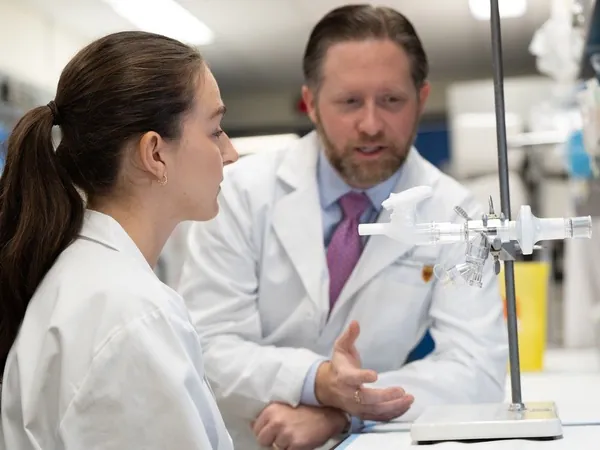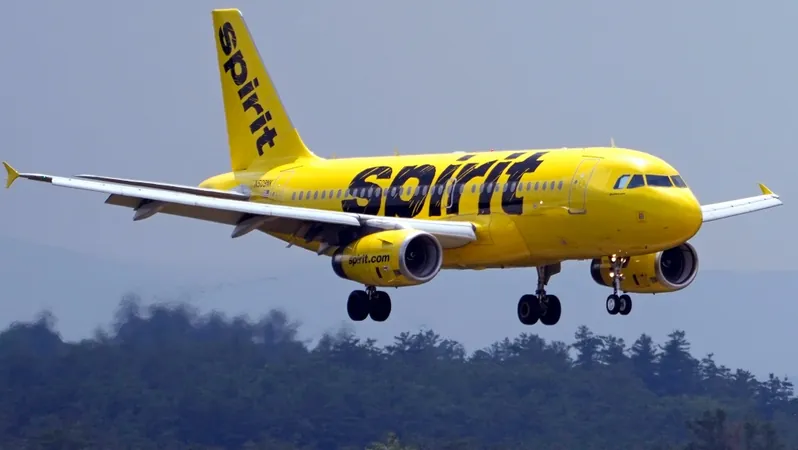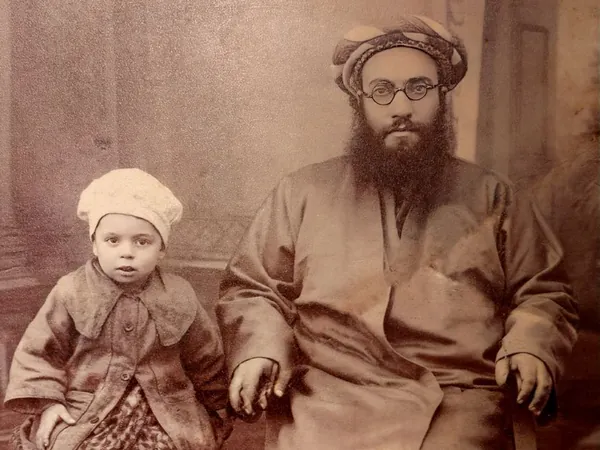
Could Next-Generation Nasal Vaccines Be the Ultimate Solution to End the COVID-19 Pandemic?
2024-10-10
Author: Charlotte
As the world first welcomed COVID-19 vaccines in late 2020, hope surged with the promise of a return to normalcy. Yet, four years later, the pandemic persists, with new, highly contagious variants continuing to pose a threat globally. Recent outbreaks across Canada have served as a stark reminder that while public health measures have weakened, the pandemic is far from over.
The latest statistics reveal that COVID-19 remains one of the leading causes of death in Canada. Despite updated vaccines reducing severe complications and mortality rates, the virus continues to spread unchecked. Experts are now worried about long-term health ramifications, including Long COVID and cardiovascular issues.
Matthew Miller, co-director of the Canadian Pandemic Preparedness Hub, highlights that the expectation by many was that COVID-19 would become a seasonal virus akin to influenza. Instead, we are still grappling with unexpected waves of infection. "I think anybody who tells you COVID-19 isn’t a surprise is not being truthful,” he stated, urging that the disease's unpredictable behavior has taken many by surprise.
However, amidst pandemic fatigue, a new beacon of hope has emerged: mucosal vaccines, which are needle-free and can be administered via spray or inhalation. These next-generation vaccines could create strong immune barriers in the respiratory tract, potentially averting infection altogether. This contrasts with existing vaccines that primarily mitigate severe disease but do not prevent infection.
Miller's research team at McMaster University is preparing for Phase 2 clinical trials of an inhaled vaccine, a groundbreaking development expected to be tested in major Canadian cities shortly. The technology used for COVID-19 vaccines could also be adapted for other infections, offering a multi-pronged approach to pandemic preparedness.
Excitement surrounding mucosal vaccines has intensified following promising data from a Chinese study, where over 86% of vaccinated individuals remained infection-free even amid widespread outbreaks. Toronto emergency physician Dr. Kashif Pirzada expressed hope that such advancements could signal a permanent end to recurring waves of infection.
Despite this surge of optimism, experts like Dr. Marc-André Langlois from the University of Ottawa caution that mucosal vaccines should not be seen as a magic bullet. "The key point is they worked in those who got infected,” Langlois remarked, emphasizing the need for effective vaccines that can prevent infections altogether.
Langlois envisions a future where mucosal vaccines become as accessible as over-the-counter medications, allowing individuals to vaccinate themselves at home. Yet, he also notes the concerning trend of government disinterest in continued funding and development for promising pandemic-related projects, which he believes is both shortsighted and discouraging.
With the pandemic highlighting gaps in public health and vaccine distribution mechanisms, Miller emphasizes the urgent need for research into mucosal vaccines as a vital tool not only against COVID-19 but also against various respiratory viruses.
In conclusion, while mucosal vaccines present a promising avenue for ending the COVID-19 pandemic, experts remain cautious about their potential limitations. The lingering presence of COVID-19 might not herald an imminent end, but with ongoing research and innovation, the tides of this prolonged pandemic could eventually shift towards more predictable seasonal patterns, much like other common respiratory viruses.
Stay tuned for more updates and developments in vaccine research that could redefine our approach toward COVID-19 and future pandemics!









 Brasil (PT)
Brasil (PT)
 Canada (EN)
Canada (EN)
 Chile (ES)
Chile (ES)
 España (ES)
España (ES)
 France (FR)
France (FR)
 Hong Kong (EN)
Hong Kong (EN)
 Italia (IT)
Italia (IT)
 日本 (JA)
日本 (JA)
 Magyarország (HU)
Magyarország (HU)
 Norge (NO)
Norge (NO)
 Polska (PL)
Polska (PL)
 Schweiz (DE)
Schweiz (DE)
 Singapore (EN)
Singapore (EN)
 Sverige (SV)
Sverige (SV)
 Suomi (FI)
Suomi (FI)
 Türkiye (TR)
Türkiye (TR)